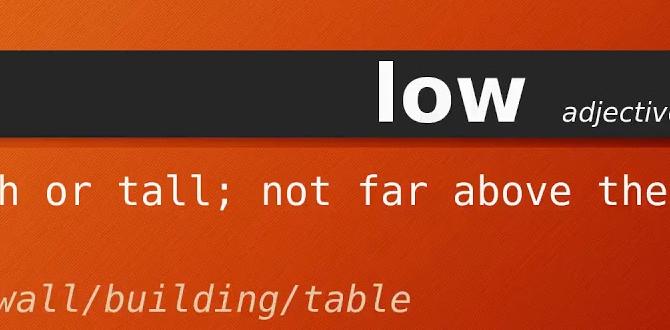Are you worried about your little furry friend’s health? Choosing the right food for small breeds can feel overwhelming. If your puppy has a sensitive stomach, you might consider hypoallergenic puppy food. This special diet helps many dogs avoid allergic reactions and digestive issues. Like humans, some pups have food allergies that make them feel uncomfortable.
Did you know that some ingredients in regular dog food can trigger allergies? Common allergens include certain meats and grains. Imagine a tiny puppy feeling itchy and uncomfortable because of what they eat! That’s where hypoallergenic options come in. They focus on gentle ingredients that won’t upset your small dog’s belly.
By feeding your puppy hypoallergenic food, you can help them live their best life. It’s important to choose the right type for small breeds, as their needs are different. You want them to thrive, not just survive! Let’s dive deeper into why hypoallergenic puppy food is a great choice for your little companion.
Hypoallergenic Puppy Food For Small Breeds: A Complete Guide
Understanding Hypoallergenic Puppy Food for Small Breeds
Choosing the right food for your small puppy is crucial. Hypoallergenic puppy food caters to dogs with sensitivity to certain ingredients. These specialized diets help prevent allergies and promote good health. Did you know that many small breeds suffer from food allergies? With hypoallergenic options, you can provide balanced nutrition without the risk of reactions. This type of food often includes easily digestible proteins and limited ingredients, keeping your puppy happy and healthy.Understanding Hypoallergenic Puppy Food
Definition and purpose of hypoallergenic food. How hypoallergenic food differs from regular puppy food.Hypoallergenic puppy food is special food designed for pups with sensitive tummies. It helps prevent allergies that can make your furry friend itch, scratch, or even have tummy troubles. Unlike regular puppy food, which can have common allergens like beef or chicken, hypoallergenic options often include unique ingredients that are easier on little bellies. Think of it as the VIP section of puppy food—only the finest ingredients for our discerning dogs!
| Regular Puppy Food | Hypoallergenic Puppy Food |
|---|---|
| Common allergens | Unique proteins |
| May cause skin issues | Promotes healthy skin |
| Standard ingredients | Carefully selected ingredients |
Importance of Choosing the Right Food for Small Breeds
Nutritional needs specific to small breed puppies. Common health issues in small breeds related to diet.Small breed puppies have special nutrition needs. They need food with high calories and protein to support their growth. Choosing the right food helps them stay healthy. Poor diets can lead to common health problems like:
- Dental issues
- Obesity
- Allergies
For example, a sad fact is that small dogs are prone to gum disease. This is why the right food is so important. Nutrient-rich foods can help lower health risks.
What should small breed puppies eat?
Small breed puppies should eat high-quality puppy food designed for their needs. Look for foods that are tasty and have better ingredients.
Key nutrients to look for include:
- Protein for strong muscles
- Vitamins for a strong immune system
- Healthy fats for energy
Common Allergens in Puppy Food
List of common ingredients that cause allergies in puppies. Signs your puppy may have a food allergy.Many puppies can be picky eaters, and some may have food allergies that cause trouble. Common ingredients that can cause these allergies include beef, dairy, chicken, and wheat. If your puppy is scratching, has a runny nose, or an upset tummy, it might be time to check their food. Watch for signs like excessive itching or vomiting. Remember, a happy puppy is a healthy puppy!
| Common Allergens | Signs of Allergy |
|---|---|
| Beef | Itching |
| Dairy | Upset Stomach |
| Chicken | Skin Irritation |
| Wheat | Vomiting |
Benefits of Hypoallergenic Puppy Food for Small Breeds
Reduction of allergy symptoms. Improvement in coat health and overall wellbeing.Hypoallergenic puppy food works wonders for small breeds. First, it can help cut allergy symptoms in check. Your puppy won’t be sneezing or itching as much. Next, it boosts coat health, making fur shine like a new penny! Overall wellbeing improves too. Happy pup, happy life, right? So, if you want your furry friend to feel great and fetch that tail like a pro, hypoallergenic food might be the secret ingredient!
| Benefit | Description |
|---|---|
| Reduction of Allergy Symptoms | Less sneezing and itching for your pup! |
| Improved Coat Health | Shiny fur makes for a happy pup! |
| Overall Wellbeing | Healthier puppies lead to fun times! |
Ingredients to Look for in Hypoallergenic Puppy Food
Highquality protein sources. Healthy fats and essential nutrients.When choosing hypoallergenic puppy food, pay attention to the ingredients. High-quality protein sources are essential for growth. Look for real meats like chicken or fish. These provide the building blocks for strong muscles. Healthy fats support energy and keep skin shiny. Essential nutrients, like vitamins and minerals, help keep your puppy healthy. Here are some key ingredients to find:
- Real meat as the first ingredient
- Fish oil for healthy fats
- Fruits and vegetables for vitamins
What are good protein sources for hypoallergenic puppy food?
Good protein sources include chicken, lamb, and fish. These meats help puppies grow strong and healthy.
How to Transition Your Puppy to Hypoallergenic Food
Stepbystep guide for transitioning. Tips to ensure a smooth transition without digestive issues.Changing your puppy’s food can be tricky. Follow these steps for a smooth switch to a hypoallergenic diet.
- Start slow: Mix a little of the new food with the old one.
- Gradually increase the new food over a week.
- Watch for any changes in their tummy.
- Keep the same feeding times each day.
- Stay calm and positive! Your puppy will sense your energy.
Keep meals smaller to help with digestion. Pay attention to your puppy’s reactions. If they seem upset, slow down the process. With patience, your puppy will feel good on their new food!
What should I watch for during the transition?
Look for signs like stomach upset, vomiting, or changes in appetite. It’s also good to check for any changes in energy level. If you notice anything unusual, contact your vet.
Consulting with a Veterinarian
Importance of professional advice on dietary changes. When to seek help regarding allergies and food sensitivities.Getting advice from a vet is very important before changing your puppy’s food. Vets understand allergies and food sensitivities. They can help you pick the best hypoallergenic puppy food for small breeds. If your puppy shows signs like itching, red skin, or upset stomach, it’s time to seek help. Early advice can prevent bigger problems later. A healthy diet leads to a happy puppy.
When should I consult a veterinarian?
If you notice signs of allergies or food sensitivities, consult a vet right away. Signs may include:
- Itching or scratching
- Red or inflamed skin
- Upset stomach or vomiting
- Changes in behavior or energy
Vets help ensure your puppy gets the nutrients they need to thrive. They can suggest safe food options, especially if your puppy has special needs.
Conclusion
In conclusion, hypoallergenic puppy food for small breeds helps prevent allergies and supports your puppy’s health. Look for ingredients that are gentle on the tummy. Always consult your vet for the best choices. By picking the right food, you can keep your puppy happy and healthy. For more tips, check out other articles on dog care!FAQs
What Are The Key Ingredients To Look For In Hypoallergenic Puppy Food For Small Breeds?When choosing hypoallergenic puppy food for small breeds, look for simple ingredients. You want real meats like chicken or fish. Check for easy-to-digest grains, like rice or oats. Avoid common allergens, like corn and soy. Lastly, make sure there are no artificial colors or flavors.
How Can I Determine If My Small Breed Puppy Has Allergies That Require Hypoallergenic Food?You can look for signs like itchy skin, red paws, or a runny nose. If your puppy often sneezes or has stomach problems, it might mean they have allergies. To be sure, you can visit the vet. They will help you find the right food for your puppy.
Are There Specific Brands Recommended For Hypoallergenic Puppy Food For Small Breeds?Yes, there are specific brands for hypoallergenic puppy food for small breeds. Some good ones are Royal Canin, Hill’s Science Diet, and Blue Buffalo. These brands help puppies with food allergies. Always check with your vet before choosing food for your puppy. They can help you find the best option!
What Are The Potential Benefits Of Feeding My Small Breed Puppy Hypoallergenic Food?Feeding your small breed puppy hypoallergenic food can be very helpful. It can reduce allergies, helping your puppy feel better and less itchy. This food often has fewer ingredients, which makes it easier to digest. You might also notice your puppy has more energy and a shinier coat. Overall, it helps your puppy stay happy and healthy!
How Can I Transition My Small Breed Puppy To A New Hypoallergenic Diet Safely?To change your puppy to a new hypoallergenic diet safely, start by mixing the new food with the old food. Use a small amount of the new food at first, about 25%. Gradually increase the new food over a week, so it gets to 100%. Watch for any tummy troubles or allergies. If you see any problems, talk to your vet for help.
Meet Elyse Colburn, the devoted canine companion and storyteller behind the enchanting world of “Tales, Tails, and Adventures Unleashed.” A passionate dog enthusiast with a heart full of paw prints, Elyse Colburn shares heartwarming tales and insightful adventures, celebrating the joy, loyalty, and endless antics that make every dog a true hero. Join Elyse Colburn on this tail-wagging journey, where every post is a love letter to our four-legged friends.







